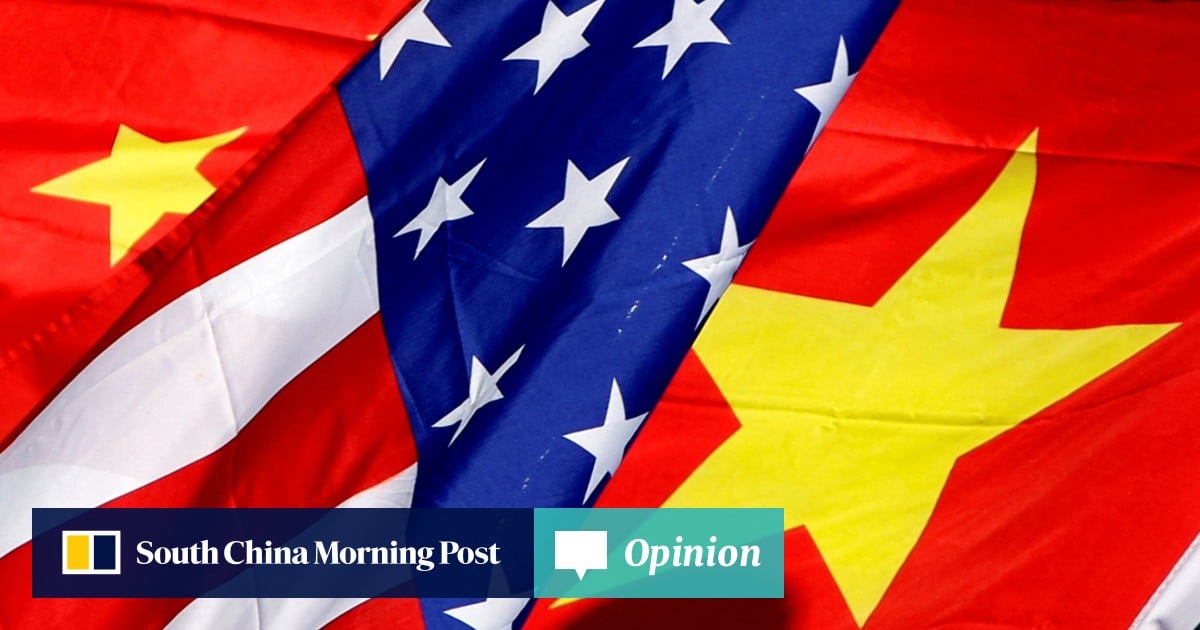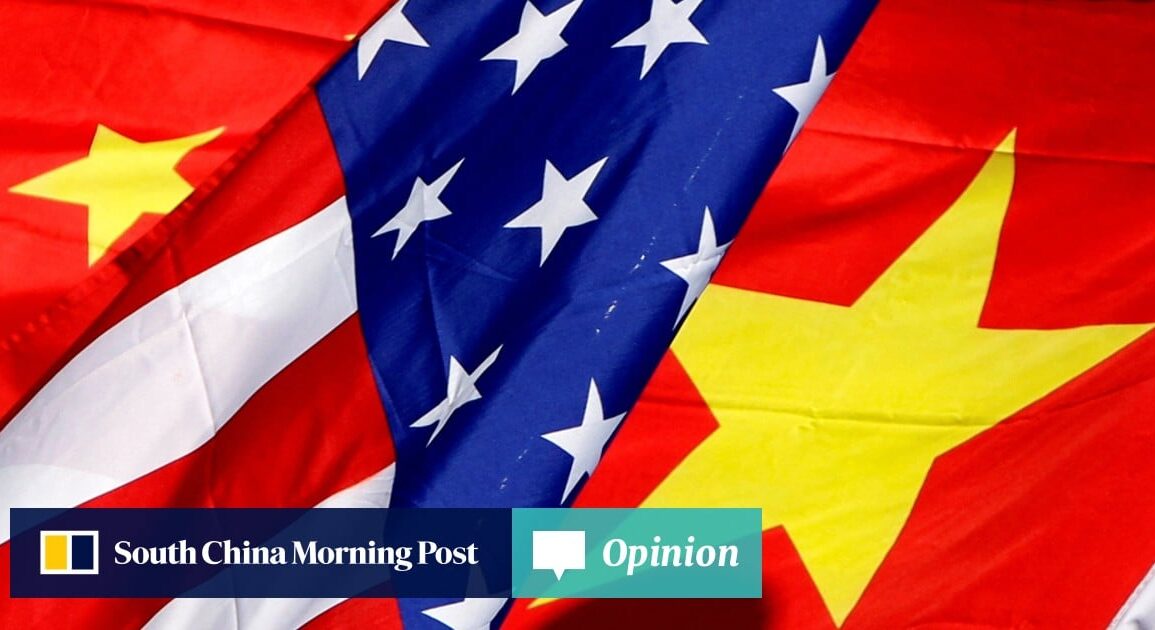
“These challenges require robust efforts by the US and its allies to address genocide; stanch the import of forced labour-made goods; circumvent censorship of the free flow of news and information; stop malign influence operations targeting US citizens and their families; and shine a light on the arbitrary detention and torture of political prisoners in China and Hong Kong.”
Violation of human rights? Genocide? Censorship? Challenge to the rules-based international order? Forced labour? Arbitrary detention and torture of political prisoners?
If you delete “China” and “Chinese” in the text, the CECC could just have been talking about the United States and its closest ally, Israel. It would be far more accurate.
Forced labour in Xinjiang
It will take too much column space to work through all the above allegations, so I will just focus on forced labour. It’s that old chestnut, “the Chinese Communist Party and government’s use of forced labour to suppress ethnic minorities in the Xinjiang Uygur autonomous region”, according to the CECC report.
“Reports of state-sponsored forced labour implicate supply chains of industries and products including automobile manufacturing, red dates, and cotton and the garment industry,” it says.
It’s not clear from the report which segments of Chinese automobile manufacturing it is referring to. Most likely, it is about a production plant that is jointly run by Volkswagen (VW) and Shanghai-based SAIC Motor in Urumqi.
About 50 Uygur employees have been found to work there. It’s possible that they are all slave labourers. More likely though, most are given more responsible jobs with higher pay than the average Uygur workforce across the region.
A US House of Representatives’ select committee on competition with China has urged VW “to cease operations in Xinjiang, where it maintains a factory with a joint venture backed by the Chinese government”.
Suppose they did shut down the plant and those 50 Uygurs lost their decent jobs, should they thank the Americans for their concern and compassion?
Cotton spinning was fully automated even before the American sanctions. Adrian Zenz, the German researcher who first claimed genocide with spurious evidence, when asked about mechanised harvesting in Xinjiang, resorted to claiming that quality cotton, which could command a premium price, still needed to be hand-picked.
That high-end segment of the market accounts for 5 to 10 per cent of total cotton production in Xinjiang. Assuming every single Uygur harvester working in that segment has been a slave labourer, there still would not have been too many of them, and only for a short time given the seasonal nature of the harvesting. But if they need to do their job with extra care and skill, you might think they would be treated somewhat differently than unskilled slaves.
The New Jim Crow
Ironically, at present, a group of current and former prisoners, all of them black, are suing the state of Alabama, by arguing that its system of prison labour amounts to a “modern-day form of slavery” with near-zero pay.
The lawsuit covers the state governor, the attorney general, as well as multiple cities and companies including Hyundai supplier Ju-Young and franchisees of KFC, McDonald’s, and Wendy’s that have allegedly benefited from using forced prison labour.
Alabama may be more extreme, but it is not alone. According to a 2022 study by the American Civil Liberties Union and the University of Chicago, about 800,000 incarcerated workers across the US perform roughly US$10 billion worth of work a year, more than US$2 billion of it for clients outside the prison system.
According to the lawsuit, as reported by The New York Times in December: “the system effectively resurrects Alabama’s notorious practice of ‘convict leasing’, in which black labourers, from 1875 until 1928, were forced to work for private companies, who in turn paid substantial fees to state and county governments.
“Since 2018, about 575 companies and more than 100 public agencies in Alabama have used incarcerated people as landscapers, janitors, drivers, metal fabricators and fast-food workers, the lawsuit states, reaping an annual benefit of US$450 million.”
Are you kidding? How can this be in “the world’s greatest democracy”? Slavery may have been abolished in the US but prison labour under near-slavery conditions is allowed under the US Constitution. Seriously.
The 13th Amendment has outlawed slavery and “involuntary servitude”, “except as a punishment for crime whereof the party shall have been duly convicted, shall exist within the United States, or any place subject to their jurisdiction”.
Americans are usually proud of the 13th Amendment, the outcome of a civil war that their ancestors spilled blood over. Many of them, it seems, are unaware of the “exception” clause in the amendment.
Of course, practically all other Western societies managed to abolish slavery civilly without resorting to the kind of extreme violence that characterises a civil war. Perhaps civil agreement is more commendable and a sign of rationality and civilisation rather than the savagery of civil war.
In any case, “Jim Crow” refers to a system, like apartheid, that legally and informally repressed, punished and discriminated against blacks after the civil war.
One of its most potent symbols, the chain gangs, still exist in some US prisons, including ones for female inmates. Blacks make up 13 per cent of the US population but 38 per cent of the people in jails and prisons. America, of course, locks up more of its citizens than any other country, whether democratic or authoritarian.
In a groundbreaking book, legal scholar Michelle Alexander calls such practices part of “the new Jim Crow”, under which discrimination can be camouflaged in employment, housing, banking, borrowing – such as getting a mortgage – education, social welfare, voting, and the legal system. Punitive and legally sanctioned violence include police brutality and presumption of guilt among judges, juries and prosecutors.
Prison slave labour is just one particularly nasty outcome out of many from the new Jim Crow. There are websites that sell goods and products made by prisoners including furniture that costs thousands of US dollars. Many end up working for some of America’s biggest corporate names or their contractors.
According to a January report by the Associated Press, “prisoners in the US are part of a hidden workforce linked to hundreds of popular food brands”.
Companies named in the AP report include: McDonald’s, Walmart and Cargill, and the companies that produce Frosted Flakes cereal, Ball Park hot dogs, Gold Medal flour, Coca-Cola and Riceland rice.
American companies have real incentives to use prison labour. The AP report says: “In addition to tapping a cheap, reliable workforce, companies sometimes get tax credits and other financial incentives. Incarcerated workers also typically aren’t covered by the most basic protections, including workers’ compensation and federal safety standards.
“In many cases, they cannot file official complaints about poor working conditions. These prisoners often work in industries with severe labour shortages, doing some of the country’s dirtiest and most dangerous jobs.”
And here’s the great irony of Washington’s defence of human and labour rights against other countries, such as China.
“Some [prison] goods are exported, including to countries that have had products blocked from entering the US for using forced or prison labour,” the AP report says.
Maybe the US should sanction itself, or China should sanction it.
This post was originally published on this site be sure to check out more of their content.









